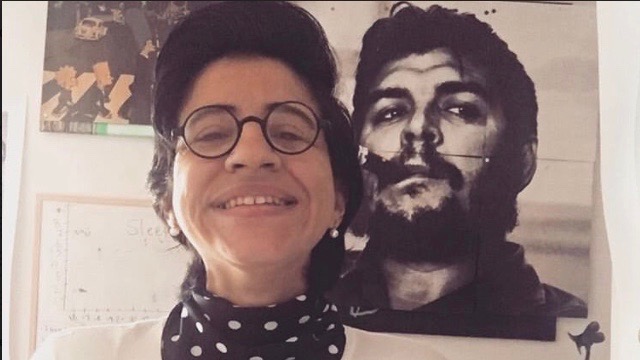30-year-old Egyptian LGBTQ and human rights activist Sara Hagezy died of suicide on June 14, Sunday, at her residence in Canada. She had been living in exile in Canada since March 2018 to escape persecution by the Egyptian government. Hagezy was also a communist activist.
She was among those arrested by the Egyptian state in September 2017, after attending a rock concert in Cairo by a prominent band from Lebanon. Mashrou Leila, the lead singer of the band, Laila Project, is a known face of the LGBTQ community. A large number of people at the Cairo concert had waved gay pride (rainbow) flags in solidarity and written about the event on social media, leading to their arrest.
Hagezy and her 21-year-old comrade, Ahmed Alaa, were arrested from their homes in the middle of the night, a week after the concert. They were charged with “habitual debauchery”, “inciting indecency and debauchery” and “joining a banned group.”
Hagezy was working as an IT professional at the time of her arrest. She was fired from her job by her employer, allegedly under state pressure.
She, along with the others arrested at the time, were subjected to various forms of mental and physical torture by the police and the jail authorities, as per some reports. Some of those arrested have been sentenced to jail terms ranging from six months to six years. Hagezy and Alaa were released on bail after three months in prison, in January 2018. A few months later, they both moved to Canada.
Persecution by law and society
Talking to NPR after her release from jail in March 2018, Hagezy had said, “It [waving the rainbow flag] was an act of support and solidarity — not only with the vocalist but for everyone who is oppressed.”
“We were proud to hold the flag. We wouldn’t have imagined the reaction of society and the Egyptian state. For them, I was a criminal — someone who was seeking to destroy the moral structure of society.”
Referring to the physical and mental abuse she faced during her incarceration, she said, “I left this experience after three months with a very intense, serious case of PTSD [post-traumatic stress disorder]” and “Prison killed me. It destroyed me.”
The arrests in 2017 were the most serious since 2001, when over 50 people were arrested by the police from a floating nightclub. The reforms in the political system post the popular protests in 2011 did not change the Egyptian state’s attitude towards homosexuality. Hundreds have been arrested since for their sexual orientation or for their advocacy of LBGTQ rights under Abdel Fattah al-Sisi’s rule.
Though there is no specific law against homosexuality in Egypt, so-called “immoral acts” clauses have been used to harass and imprison LGBTQ persons and activists by the state. In most of the cases, a 1960 anti-prostitution law is used to charge people with “debauchery”. Egyptian courts have also played along with the conservative sections of society, and followed this interpretation of the law to criminalize homosexuality.
The persecution of LBGTQ activists is also reflective of the general authoritarianism of the Egyptian state under president al-Sisi, whose government has used all kinds of oppressive measures to silence political dissent and human rights groups in the country.





